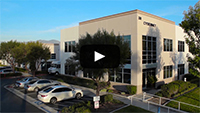Why Anti-Glare Screens Matter for Medical and Industrial Computers
April 18, 2024
We’ve all had the experience of trying to use our computer or smartphone, only to curse and crane our necks because of the glare obscuring most of the screen. Screen glare isn’t just an annoyance, however. Dealing with harsh screen glare can lead to eye strain, headaches, and even neck and…
How to Choose the Right Enterprise Computer Solutions for Healthcare
April 16, 2024
Medical computers are specifically built to handle the sometimes punishing environments in the healthcare sector, such as hospitals. Related health organizations like rehabilitation centers, nursing homes, and hospice care may not always feel the need or have the financial means to have medical…
Why Industrial and Medical Computers Need a Long Life Cycle
April 11, 2024
In the tech industry, a device’s life cycle refers to how long it will remain in production and supported by its manufacturer. Due to the pace of innovation in the industry, tech products like computers often have very short life cycles compared to products in the automotive or industrial sectors,…
A Comprehensive Guide to Aircraft Assembly Line Equipment
April 9, 2024
Did you know the final assembly of an aircraft is primarily done by hand? The Final Assembly Line (FAL) is the stage in aerospace manufacturing where the wings, tail, and other major plane parts are attached to the fuselage. Passenger seating, storage compartments, and electronics like industrial…
The Ultimate Guide to NVMe Storage: Everything You Need to Know
April 4, 2024
In the world of computers, consumers are always looking for the next evolution, the next leap in power that delivers faster and more reliable performance. Recently, that evolution has taken the form of Nonvolatile Memory Express, or NVMe. NVMe is a new protocol for storing and transporting data to…
Understanding the Security Features of RFID Technology vs. Smart Cards
April 2, 2024
Security is vital to all industries, from manufacturing to the healthcare sector. Breaches in security can result in stolen proprietary materials, financial loss, or worse. Certain kinds of security breaches may even put lives in jeopardy. Fortunately, there is a solution in the form of employee ID…
Why Rugged Tablets are Perfect for Industrial Worksites
March 28, 2024
For most workers, computers have become ubiquitous in their daily workflow. However, some workplaces are too inhospitable for the average consumer or off-the-shelf PC. Construction sites, factory floors, oil rigs, and other hazardous worksites simply are too much for a typical computer to handle.…
Capacitive vs. Resistive Touch Screens: What’s Right For Your Business?
March 26, 2024
From cell phones to factory floors, touch screens have become a ubiquitous part of computers in our daily lives. But for how much time we spend swiping, tapping, and scrolling, how much do we actually know about these pieces of technology? There are two major types of touch screens: capacitive and…
The Importance of Data Security in Healthcare: Protecting Patient Privacy
March 21, 2024
The healthcare sector has become increasingly data-driven as providers embrace analytics to find better solutions and improve people’s quality of life. However, this data can be a significant point of vulnerability and a tempting prize for cybercriminals to steal. Data security, the process of…
Sign Up
Join our 35,000+ subscriber newsletter and discover the latest in the healthcare, industrial, and enterprise technology communities.


